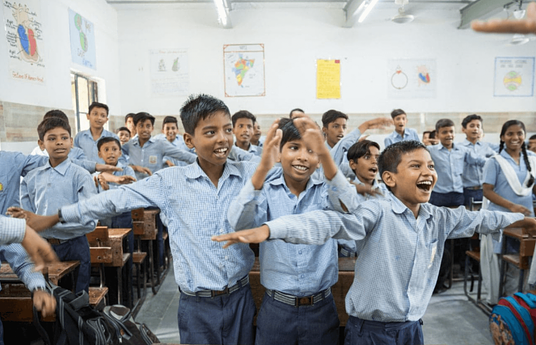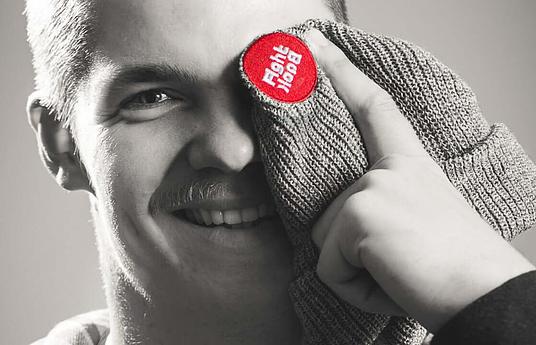Why SMILES in Education?
We believe every classroom should deliver real life skills integrated education in a joyful and passionate environment where no child feels afraid, apathetic or ashamed. This requires that teachers are themselves empowered with such life-skills and well being tools in a stress free learning ecosystem which continuously motivates & supports them.
Our mission is to help teachers transform their classroom into a recharging station for motivation and mutual well-being along with their students resulting in joyful learning.
Impacted students and teachers:
* Between July 2017- Feb 2019, SMILES in Education has impacted 4 low income schools in India impacting ~ 4500 students & 160 teachers
.
* Since April 2019, SMILES has been integrated in the curriculum of Talking Tree Hill School in Auckland, New Zealand impacting ~ 500 students and their teachers.
* Besides, some teachers and students have been trained and using SMILES in countries like USA, Finland and Spain.
The Problem: Our education system is not preparing us for what we need and expect in real life. We are still focused on age old criteria for academic excellence and competing against each other. Teaching is being done in silos without direct correlation to what skills and mindsets children need in real life. Instead of using technology to their advantage, many teachers and students are using it to replace their own hard work and creativity. Focusing the mind is becoming increasingly difficult both inside and outside the classroom resulting in lack of motivation to learn new skills. Despite increasing social isolation and bullying, there is very little focus on mental and social well being in the classrooms. Relevance of schools and teachers will get eroded if we do not make schools a place of mental, emotional and social learning with full participation of motivated students and full facilitation of motivated teachers.
Our Solution: We have designed S.M.I.L.E.S. (Stress-free Motivating Inquisitive Learning Eco-System), a continuous and comprehensive holistic teacher development and support program which can be sustained long term by local teacher leaders. SMILES creates a stress free, self-sustaining learning community of motivated teachers using mindfulness, positive psychology and yoga techniques integrated with pedagogical skills for excellence in academics and well being of students and teachers.
Mindfulness means being in the present moment and focusing on it. If teacher & students are frequently focusing on the present moment, their attention span improves giving better class control, better concept clarity and active participation resulting in academic excellence.
Our learning model is “First feel inside, then share outside!” Teachers experience the benefits of well being in their own lives, infuse their own creativity and positivity into teaching. So SMILES program starts with experiential learning for teachers and administrators first and then we move on to students and eventually parents.
Uniqueness of SMILES program is that it ensures improved academics results and cognitive skills (like problem solving, critical thinking and decision making) by regular practice of easy SMILES anchors regularly.
For Teachers, SMILES generates a positive learning ecosystem that supports their local context based new knowledge and skills in a stress free manner. It motivates them by boosting their self-esteem, helping them utilize their talent and passion in classrooms and giving due recognition and opportunities for growth. It generates curiosity in teachers for learning and exploring new ways of teaching.
For Students, SMILES provides mindfulness anchors and easy to do techniques for improved concentration, academic performance and emotional well-being. It also develops values like compassion, mutual respect and gratefulness which reduces classroom conflicts and bullying, enabling all-inclusive growth.
For Parents, SMILES delivers sessions on mindful parenting where parents learn techniques to accept their children non-judgmentally and guide them positively.They also learn about mindfulness anchors which take care of their own well-being and to help their kids improve their academic and behavioral skills.
How does SMILES in Classroom work?
Teachers trained with “SMILES in Education” plan every learning session using three main components:
1. Mindful Beginning: Teacher & students start the lesson feeling grateful for today’s learning opportunity, do positive affirmations with deep breathing and choose a positive word/value for today’s lesson. The teacher tells them about what knowledge they will get today and how it is related to what we learnt before. Then together they discuss why this knowledge is helpful in daily life.
2. Mindful Learning: Then most of the session is spent learning “how” of the topic using best pedagogical skills (like inquiry based discovery, peer learning, activity driven learning, realia etc.) integrated with SMILES Rules or mindfulness anchors for learning. The teacher can use Mindfulness Pauses along with students for well-being and better classroom control. In between, they recall their chosen positive word/value and ensure its being followed.
3. Mindful Closing: Towards the end, a mindful reflection of what, why and how of what we learnt today is done by all students and teacher together. Its most powerful part of the lesson where mindfulness helps students to recall, comprehend & memorize new knowledge gained. Gratitude & forgiveness during this closing helps develop a positive relationship with teacher, fellow students and self.
Click here to know the steps to implement the full program in your school.
PILOT and IMPACT data:
Click here for impact data chart
Some Impact data from our “SMILES in Education” program running for 6 months from June 2018 in 3 schools in India is given below:
1. Effectiveness Survey showed that out of 2,231 students, the number of students who gained confidence in learning and were able to recall quickly, increased from initially 720 students to 1383 students after they used the SMILES rules. This is a ~ 30% increase in just 4 months of implementation.
2. Motivation and productivity survey among teachers using SMILES in Education program shows:
i. 100% feel happier and healthier after using SMILES rules in classroom.
ii. 90% find SMILES Rules easy to implement in classroom.
iii. 80% teachers say their classroom has become more joyful.
iv. 79% teachers say their students became more attentive and more calm.
v. 67% teachers say their students show more interest in participating in classroom.
We have done 2 pilots of components of SMILES program in low income schools in Ahmedabad, India from November 2016- April 2018 directly impacting ~60 teachers and indirectly impacting ~1500 students. We conducted over 16 bi-monthly workshops, gave demos in classrooms, made classroom execution videos and held development discussions with several teachers.
The attendance of each of our workshops has been > 90%.
As the program progressed, we saw significant improvements in teachers’ motivation & participation levels in individual as well as group activities.
Several teachers have on record acknowledged how confident and motivated they feel after attending SMILES.
We also took testimonials from principals and trustees. The principal and supervisors are very satisfied with overall improvement in school culture and joy levels. They are very excited to continue the program for the second year.
References:
1. Integrating Mindfulness Training into K-12 Education: Fostering the Resilience of Teachers and Students:
"John Meiklejohn, Catherine Phillips,et al. (2010)"
2. Mindfulness meditation may lessen anxiety, promote social skills, and improve academic performance among adolescents with learning disabilities. Complementary Health Practice Review, 13,34–45. doi:10.1177/1533210107311624
"Beauchemin, J., Hutchins, T. L., & Patterson, F. (2008)"
3. Third Eye Acupressure point GV24.5 - Acupressure for Hormonal Balance, Depression, Anxiety, ADD, ADHD, Racing Thoughts, and Mental Health
"Michael Reed Gach, Ph.D., Acupressure Institute founder & Director, Berkeley, CA, USA"
4. Effect of Nabho Mudra on Memory Introduction Research Methodology
"Gokul Singh , Yogacharya , Panjab Sindh Kshetra Sadhu Mahavidhayalaya Rishikesh,Uttarkhand, India"



